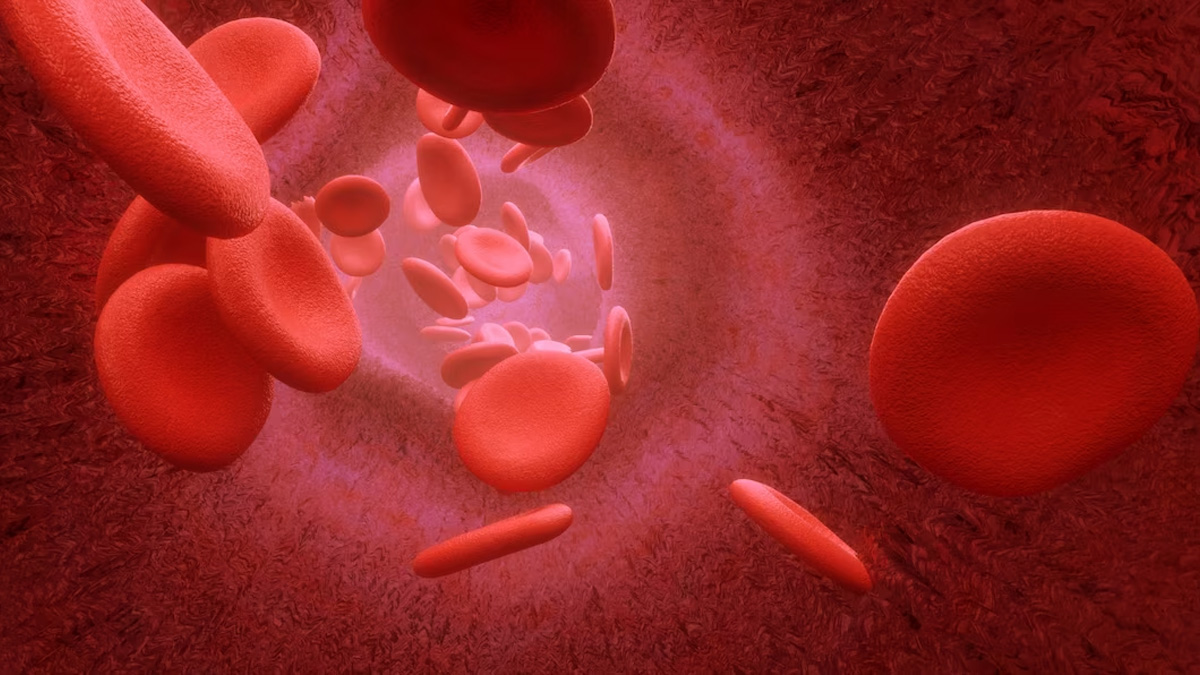
Receiving a blood cancer diagnosis can be a life-altering moment for patients and their loved ones. In addition to the myriad health complications and symptoms that are characteristic of blood cancer, dealing with cancer can also be emotionally challenging for the patients and their loved ones.
Table of Content:-
As per Leukemia Care, A Blood Cancer Charity, 'The emotional impact of a blood cancer can be just as difficult to cope with as the physical aspects of the disease.' "This is true whether you’re currently in treatment, done with treatment, or a friend or family member of a blood cancer patient," elucidated Dr L Rohit Reddy, Consultant Medical Oncologist & Hemato Oncologist, Yashoda Hospitals, Hyderabad, while talking to the team of OnlyMyHealth.
Emotional Challenges Of Blood Cancer

Dr Reddy's comments shed light on how caregivers play a vital role not only in assisting with physical needs but also in providing the crucial emotional support that can make a significant difference in a patient's journey.
Also Read: Blood Cancer Awareness Month: Exploring Ayurveda, Acupuncture, And Art Therapy To Manage Symptoms
To aid caregivers in understanding the emotional rollercoaster a blood cancer patient might be going through, Dr Reddy listed a set of emotions that are commonly felt after any cancer diagnosis:
- Overwhelmed: A number of patients feel overwhelmed upon getting diagnosed. "It's normal to feel as if your life is out of control. But, you can get back into control by learning about your disease, asking your doctor relevant questions and focusing on recreational activities like music and crafts that can help you stay calm.
- Anger: It is indeed unfair to get a blood cancer diagnosis, and life can seem quite hopeless after it. One may feel angry at themselves, caregivers, doctors and nurses. Short-term anger is good as it helps you take control and let out your pent-up feelings, but long-term anger can be detrimental. Blood cancer patients can cope up by sharing their feelings with friends, counsellors and doctors.
- Fear And Worry: Fear goes hand in hand with a cancer diagnosis, and it really blurs the possibility of a long healthy life. However, the best practice here is to face your illness head-on. Learning about your cancer, outcomes, cost of treatment and available options and being well informed will help you.
- Stress And Anxiety: Feeling overwhelmed and afraid after a blood cancer diagnosis can cause stress and anxiety in patients. Since a disease like blood cancer can also severely impact work, social life, and finances. These put additional stress on blood cancer patients who often feel anxiety-induced sweating, palpitations and doom.
Tips For Caregivers

Blood cancer also takes a toll on the loved ones of patients, as they are usually in the position of a caregiver who has to take on the responsibility of helping the patient receive proper care and treatment.
Also Read: World Blood Cancer Day 2020: Understanding Leukaemia, Lymphoma, Myeloma And Its Warning Signs
"Blood cancer diagnosis also puts a burden on caregivers as they worry about their patient, outcomes, finances, arranging for blood products, health, job and social life," commented Dr Reddy. He suggested a few tips for caregivers to fulfil their responsibilities in the best way possible, without taking any additional emotional burden on themselves:
- The first thing to keep in mind is that you will learn on the job. You will learn as you go along through the process of being a caregiver as you will be exposed to new situations every day, and in no time you will know what to do and how. Try to pace yourself.
- Do not hesitate to ask for help from other friends and family members early in the course of treatment. The more people support you, the better support you can provide to the patient. However, be prepared that not everyone will help you.
- Take care of yourself as well by finding the time to relax, exercise, keep a healthy routine, and be in touch with your feelings.
- There are a number of support groups for caregivers as well that you can join both in person and virtually.
- Educate yourself about the emotional outcomes of a blood cancer diagnosis to better assist the patient in dealing with their trauma.
- No matter the adversity, try to keep a positive mind about treatment outcomes. A positive mind can help you conquer any battle.
- Be a good listener. Create a safe space for the patient to express their thoughts, feelings, and concerns without judgment.
Being a caregiver to a blood cancer patient is a deeply compassionate and demanding role. Your emotional support is a crucial component of their journey towards recovery and healing. By actively listening, educating yourself, and offering empathy, you can create a supportive environment that enables the patient to navigate the challenges of blood cancer with resilience and hope. Remember, your presence and care can make a world of difference in their battle against this disease. If you ever feel overwhelmed or unsure about how to provide the best emotional support, don't hesitate to seek guidance from healthcare professionals or support organizations specializing in blood cancer.
Also watch this video
How we keep this article up to date:
We work with experts and keep a close eye on the latest in health and wellness. Whenever there is a new research or helpful information, we update our articles with accurate and useful advice.
Current Version